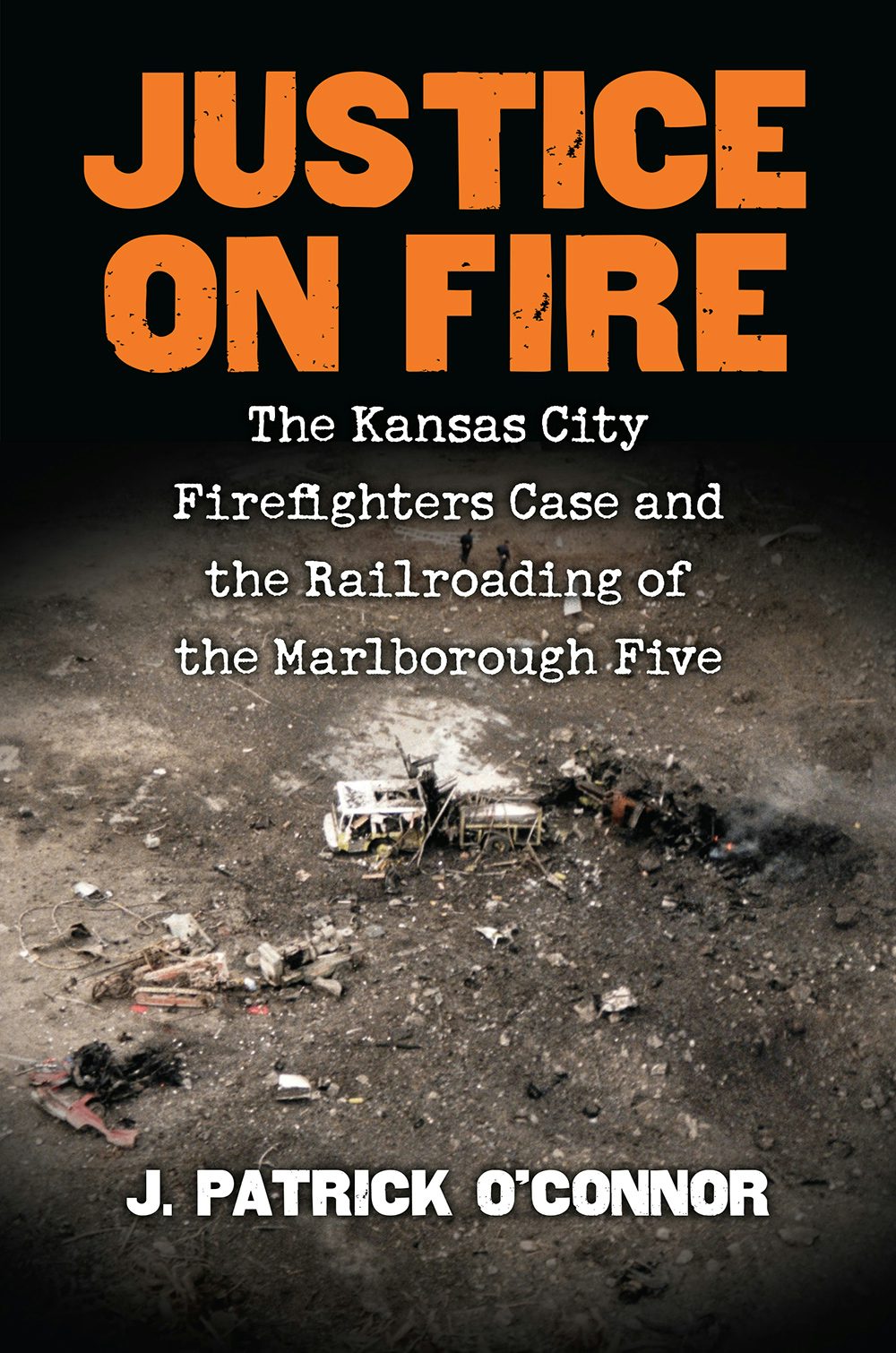
Five months after the author’s grandfather was sentenced to only 10 years for the shooting death of his father in Fall River, Massachusetts, Lizzie Borden was acquitted of the axe murders of her father and stepmother in Fall River, Massachusetts. Was Lizzie inspired by the public sympathy and light sentence meted out to her townsman?
When I retired in March of 2011, I finally had the opportunity to complete several projects that I had put aside for many years. The first and most important to me personally was the completion of a family history that I had started in the 1980’s. The advancement of genealogy information and its availability on the Internet afforded me an opportunity that I had never been able to utilize in my earlier search for information.
My parents had both been born and raised in Fall River, Massachusetts, a city rich in history that had been a magnet for immigrants from the British Isles and Europe during the mid and late 1800’s. They flocked to the area in search of employment in one of the city’s many mills and supporting industries. Consequently I was familiar with the city and the story of Lizzie Borden. What I never knew and was probably never known by family members was our own peripheral connection to the Lizzie Borden case.
My mother’s family had emigrated from England in 1910 and there was a wealth of information available from personal recollection and subsequent research t hat filled in the gaps. I began to think that my family history project could be finalized in short order. As I turned to my father’s side of the family I realized just how little I knew and how wrong I was with respect to my projected finish date. The other fact that began to emerge from my research was the wealth of surprises and skeletons that come out in the open during an in-depth genealogy project. In my case, it was the murder of my great–grandfather, James McDougall, by the hand of my grandfather, James McDougall Jr.
At this juncture I should point out that my paternal grandfather was born in 1866 and died in 1947. My father was the youngest in the family and was raised by his three sisters after the death of his mother in 1925, when he was 4 years old. I never knew my paternal grandfather, and even my father was not that familiar with his early life other than the fact that he was born in Scotland and became a carriage painter when he came to America. He and his parents and four siblings came to America in 1873, and settled in Fall River where the elder McDougall worked as a carpenter. My own research confirmed this information.
In 1892, James McDougall Jr. had found work as a carriage painter in New York City and was sending money home to help his mother pay the bills. Research revealed that there was some significant family strife that led to the separation of James McDougall Sr. and his wife Catherine. She subsequently took up separate residence with the children. The younger James’s disappointment with how the separation developed and was being played out led to a major confrontation between him and his father.
 |
|
James McDougall, Jr. with his wife Marie Elisabeth Durand circa 1910 |
On January 29, 1892, James McDougall Jr. returned to Fall River from New York City to effect reconciliation between his parents. He met his father on the pier of the Fall River Line where they walked and discussed the family’s domestic strife. At one end of the pier the discussion grew heated and James Jr. drew a five-chambered Swift revolver and shot his father five times. The account from a local newspaper, The Fall River Daily Globe, gave a more graphic description of the shooting:
At the time of the shooting the men were not eight feet apart. One of the bullets went through the flesh, under the chin which was bearded. Another went through the left sleeve between the shoulder and elbow. The shirt was not torn but the arm was scarred. A third bullet went into the father’s left hand entering in the back below the wrist and lodging midway between the palm and back. A fourth plowed through the overcoat and undercoat just above the middle of the stomach, and the fifth most miraculously of all, tore through the overcoat, undercoat, jumper and undervest, and stopped only when it had made a small dent in a starched white shirt an inch below the heart.
What could have caused such a desperate act on the part of my grandfather? Newspapers of the day, including the news article from The Fall River Daily Globe cited below, reported many aspects of the assault and its aftermath. Two police officers on the pier had observed James Jr. smash a revolver against the wall of the building and learned from him that he had just shot his father. The officers immediately arrested him and transported him to the marshal’s office where Marshal Hilliard questioned him.
McDougall told a straightforward and in many ways a pitiful story to the city marshal, and it is not pleasant to say that the circumstances leading up to the shooting necessitates the unraveling of an unhappy yarn of domestic life.
According to the story told by his wife and his eldest son James, he has not lived happily with his wife for 18 years. He has always held the purse strings in the household economy and while his family may have been stinted, it is alleged that he has gone to his work with a wad in his pocket.
He has compelled his wife to provide for his family on a basis of $1.85 a head per week she says, and when the expenditures exceeded that amount he has cursed and swore and displayed an ungovernable temper. Four months ago or thereabouts his wife thought she had reached a point where she should not bear with his peculiarities any longer.
One Saturday night the father went home and found that the wife and daughter had repaired a kitchen carpet. The daughter had been kept from work while the bit of household economy was being accomplished. When the father learned of this he raved and stormed and ordered the mother to leave the house just as he had frequently done before.
The mother accepted an offer to leave the house and accept $3 a week. Monday morning she left, taking only a spring bed and the clothes she wore, and went to live in a stone cottage on Pleasant Street.
James McDougall Sr. was first taken to Dr. Leary’s residence where it was determined he was too weak to have an operation to remove the bullet from his hand. He was then taken to his home at 89 Third Street (bordering the backside of the Borden residence located at 92 Second Street). He remained in a weakened state not only from the shooting, but from an illness suffered at his work several months earlier. Newspapers reported that he had wanted to avoid prosecution of his son and was more worried about the disposition of the case than the result of his wounds.
Meanwhile, the younger James was arraigned in the district court the day after the shooting. He was charged with assault on his father with a dangerous weapon, to wit, a pistol loaded with powder and shot. He pled guilty, but, as reported by The Fall River Daily Globe, Marshal Hilliard addressed the court saying:
This was one of the unfortunate occurrences which came to the notice of the police. It grew out of family difficulties. McDougal, he said, had been employed as a painter in New York and did all he could toward the support of his mother who lived apart from the father.
If this boy’s story to me is true, Your Honor, I can readily see how he could be worked up into a state of mind during which he could shoot his father. I have great sympathy for him and have drawn this complaint so that this court can take jurisdiction. The father bears a good reputation at Tripp’s shop where he was employed, but his conduct there could differ very widely from his actions in the family circle.
Dr. Leary also testified and noted that the elder McDougall’s wounds were “peculiar” but not necessarily fatal unless complications arose which were not now apparent. The court adjudged the younger McDougall as probably guilty and held him on a $1,000 bond for the grand jury.
Shortly after this hearing James McDougall Jr. returned to court and was charged with assault with intent to kill. He was found guilty and sentenced to six years in the Massachusetts Reformatory where he was received on February 20, 1892. A report from the Office of the Commissioners on the Reformatory intake record noted: “This assault grew out of a family quarrel. Parents had separated, father refused to assist the mother and James, who worked in New York, gave her his earnings and she relied on him. He had threatened to kill James if he helped his mother anymore and James bought a revolver to use in self defense. His father was one of the meanest men that ever lived and that he caused his family to suffer. James has the sympathy of nearly all the people in Fall River.”
Meanwhile, efforts to locate the bullet in the senior McDougall’s hand were unsuccessful and he passed away on March 4, 1892. The official cause of death recorded on his death certificate was “fracture with necrosis of bones of hand and inflammation of tissue of same.”
On June 20, 1892, the younger McDougall was arraigned in Superior Court and charged with the murder of his father. On October 31, a plea agreement was reached whereby James pled guilty to manslaughter and he was sentenced to 10 years in the Massachusetts State Prison. James McDougall Jr. was released on parole on September 13, 1900, and returned to Fall River, Massachusetts. He married Marie Elisabeth Durand in 1910, and raised five children. James died of cardiac failure January 9, 1947, and is buried next to his father in Oak Grove Cemetery in Fall River.
How does this connect to the Lizzie Borden case? The first and most obvious similarity is the proximity of the Borden and McDougall residences. The Borden horse barn exited to Third Street and it very likely that the McDougall family would have had occasion to speak with the residents of the Borden household in spite of the differences in social status. James McDougall’s occupation as a carriage painter may have also inspired some interest in his part in the Borden family carriages. The elder McDougall was also known to have been a member of several fraternal or social organizations to which the Borden men also belonged. Some also believe that Lizzie may have been inspired to commit patricide by James McDougall Jr., a theory that could be furthered as the McDougall trial unfolded. Lizzie Borden could have been moved by the sentiment of sympathy for the younger James and the relatively light sentence he received. As noted earlier the connection to the Borden case is peripheral, but it makes one wonder!








